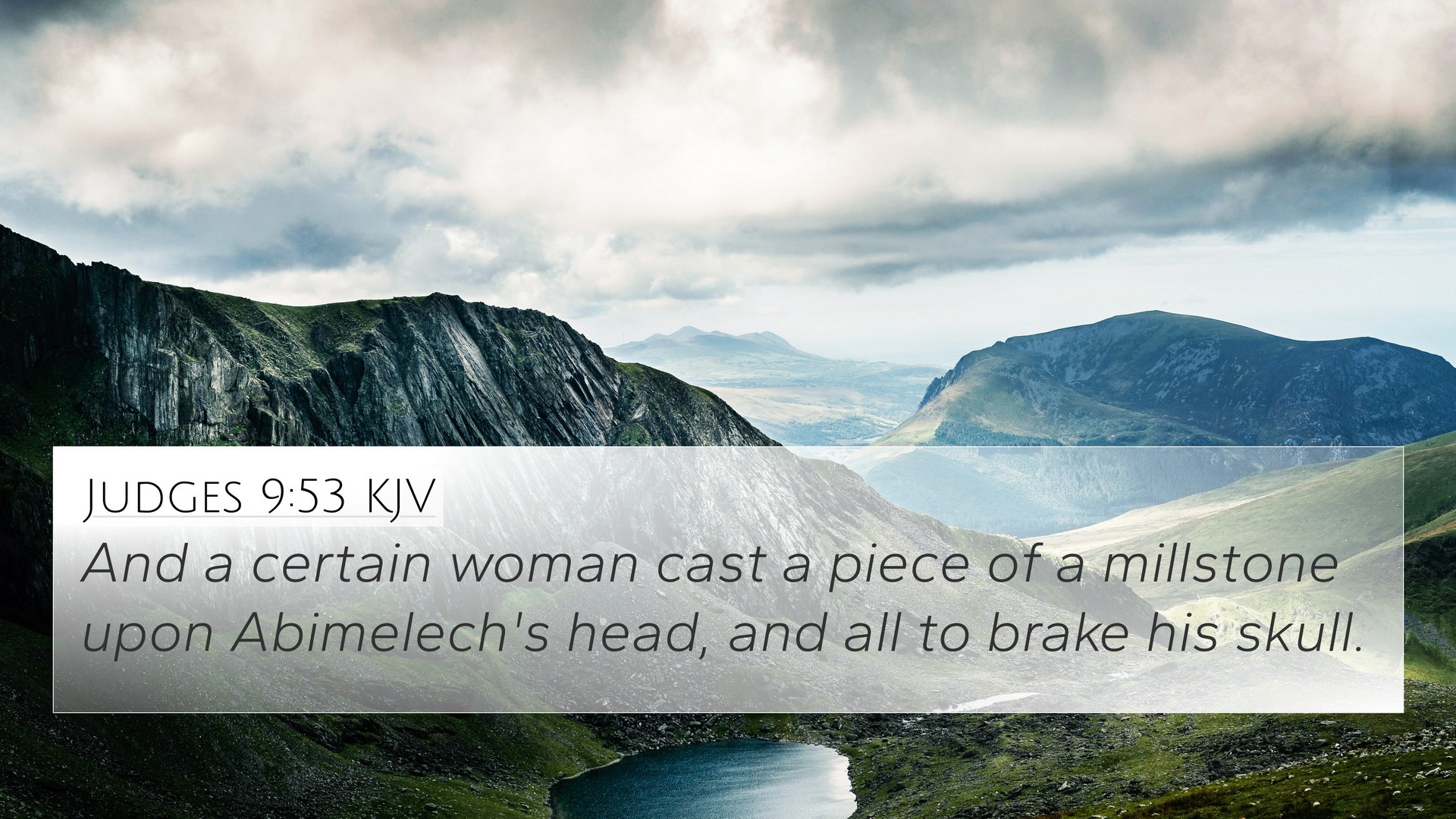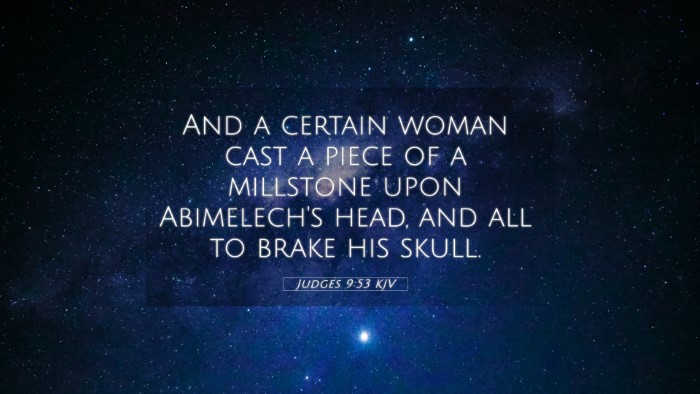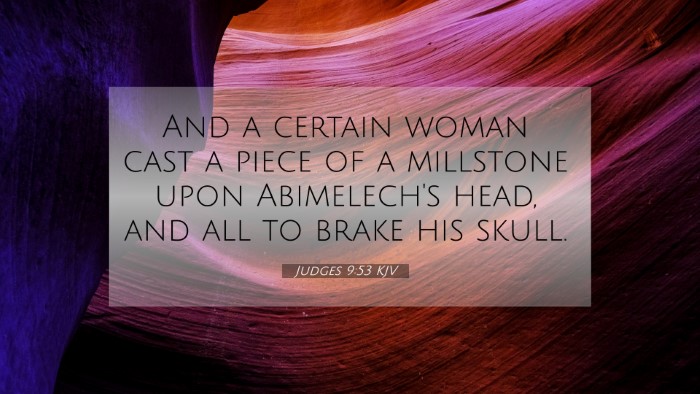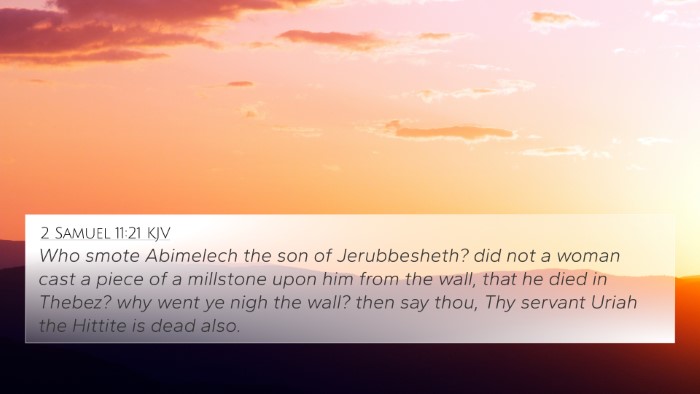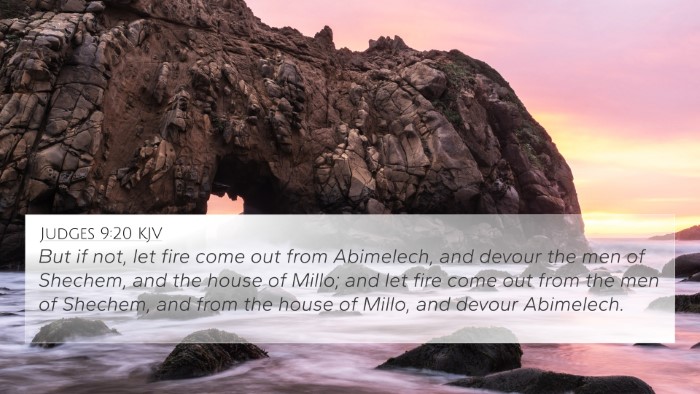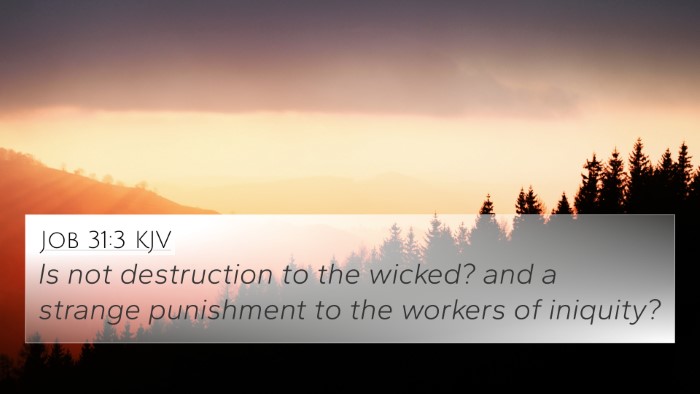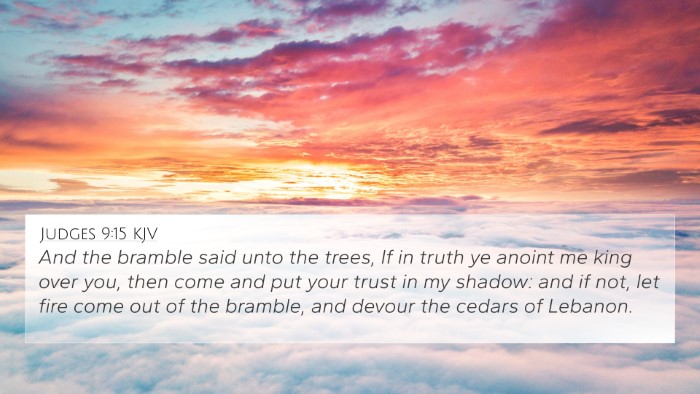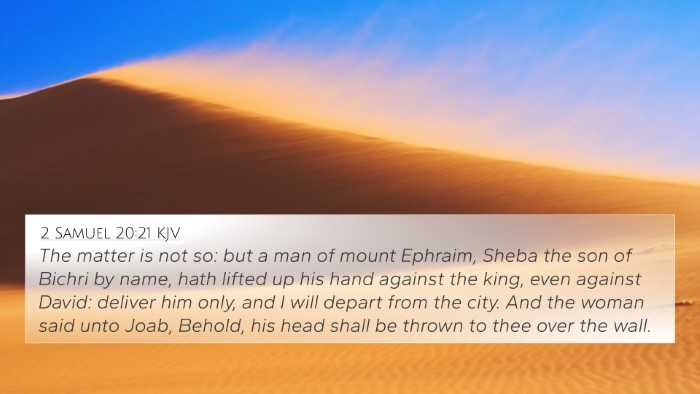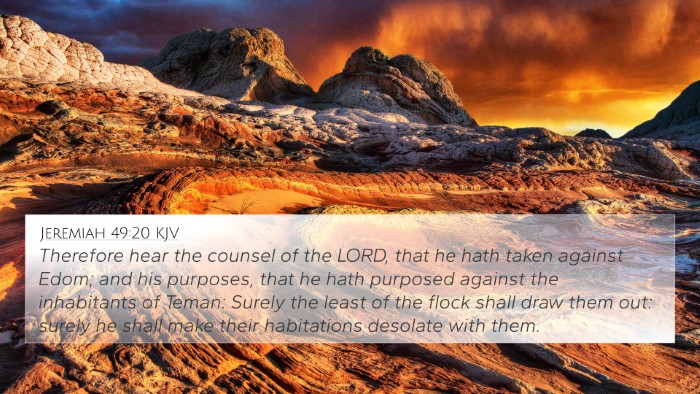Old Testament
Genesis Exodus Leviticus Numbers Deuteronomy Joshua Judges Ruth 1 Samuel 2 Samuel 1 Kings 2 Kings 1 Chronicles 2 Chronicles Ezra Nehemiah Esther Job Psalms Proverbs Ecclesiastes Song of Solomon Isaiah Jeremiah Lamentations Ezekiel Daniel Hosea Joel Amos Obadiah Jonah Micah Nahum Habakkuk Zephaniah Haggai Zechariah MalachiVerse
Judges 9:1 Judges 9:2 Judges 9:3 Judges 9:4 Judges 9:5 Judges 9:6 Judges 9:7 Judges 9:8 Judges 9:9 Judges 9:10 Judges 9:11 Judges 9:12 Judges 9:13 Judges 9:14 Judges 9:15 Judges 9:16 Judges 9:17 Judges 9:18 Judges 9:19 Judges 9:20 Judges 9:21 Judges 9:22 Judges 9:23 Judges 9:24 Judges 9:25 Judges 9:26 Judges 9:27 Judges 9:28 Judges 9:29 Judges 9:30 Judges 9:31 Judges 9:32 Judges 9:33 Judges 9:34 Judges 9:35 Judges 9:36 Judges 9:37 Judges 9:38 Judges 9:39 Judges 9:40 Judges 9:41 Judges 9:42 Judges 9:43 Judges 9:44 Judges 9:45 Judges 9:46 Judges 9:47 Judges 9:48 Judges 9:49 Judges 9:50 Judges 9:51 Judges 9:52 Judges 9:53 Judges 9:54 Judges 9:55 Judges 9:56 Judges 9:57